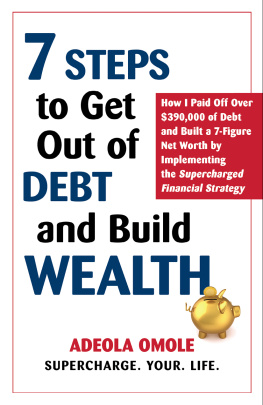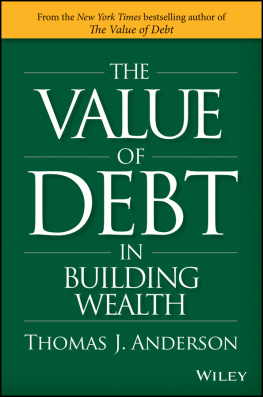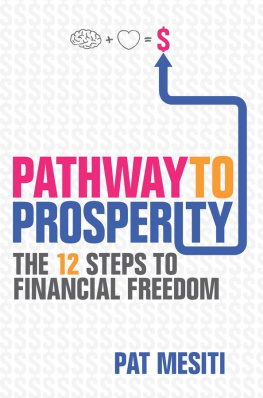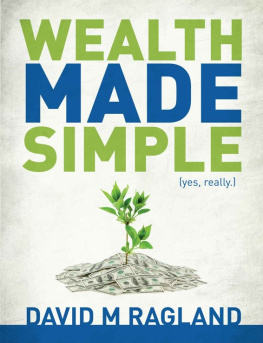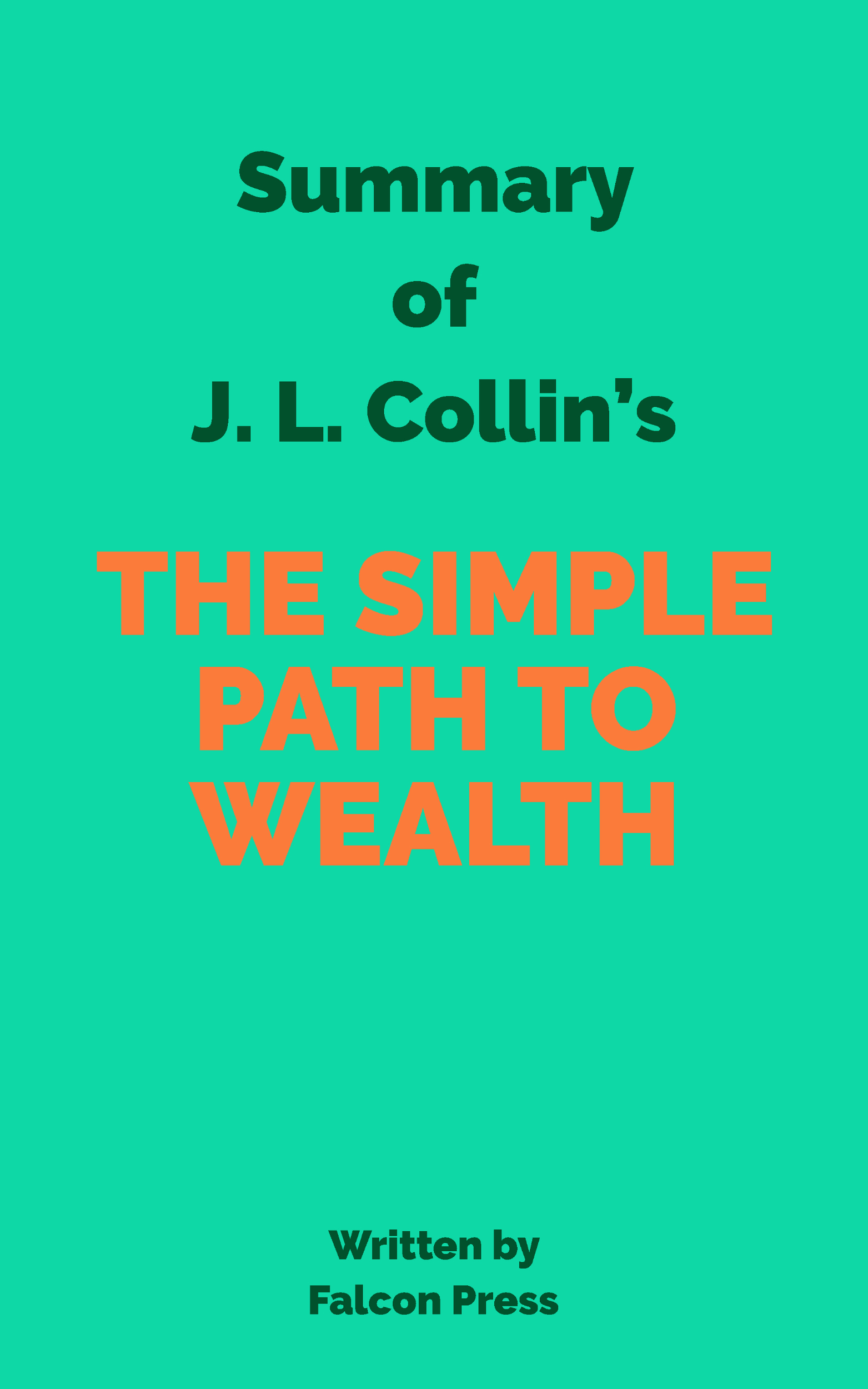Falcon Press
Summary of J. L. Collins The Simple Path to Wealth
First published by Falcon Press 2021
Copyright 2021 by Falcon Press
All rights reserved. No part of this publication may be reproduced, stored or transmitted in any form or by any means, electronic, mechanical, photocopying, recording, scanning, or otherwise without written permission from the publisher. It is illegal to copy this book, post it to a website, or distribute it by any other means without permission.
First edition
This book was professionally typeset on Reedsy
Find out more at reedsy.com
Overview
The Simple Path to Wealth (2016) is a guide towards accumulating wealth, gaining your financial independence, and taking charge of your financial destiny. Financial expert J.L. Collins argues that the stock market is one of the most powerful wealth-building tools out there, and everyone should be investing in it.
If you want to become financially independent, you have to follow this simple formula: spend less than you earn, invest the surplus, and avoid debt. Contrary to popular belief, being financially independent has less to do with how much money you make and more to do with how much money you spend. Money can buy many things, but none of them are more important than your financial independence.
Insights from Chapter 1
#1
Debt has become extremely normalized. However, if you intend to achieve financial freedom, you have to realize that debt is a huge barrier to building wealth.
#2
If you are already in debt, paying it off should be your top priority. This will require you to drastically adjust your lifestyle to free up the money you need to direct toward your debt. Once your debts are paid off, consider shifting your money to investments.
Insights from Chapter 2
#1
There are many things money can buy, but the most valuable of all is the freedom to do what you want and to work for someone you respect. Those who live paycheck to paycheck are slaves, and those who carry debt are slaves with even firmer shackles.
#2
F-You Money is one way to ensure your freedom and a basic sense of security. Its the money you put aside so youre not held hostage by a limited salary.
Insights from Chapter 3
#1
Every middle-class wage earner can retire a millionaire.
#2
Compounded over time, it takes very little money invested to grow to $1,000,000. For example, if you started in January 1975 and invested $130 per month in stocks, by January 2015 you would have had $985,102. However, compounding takes time, so it helps to start young.
#3
Unfortunately, the market has many of us convinced that we always need the latest gadgets and absolutely must have the most fashionable clothes. And that is why retiring as a millionaire is very unlikely.
Insights from Chapter 4
#1
The most valuable and powerful tool for navigating the world is money, and thats why its essential to first learn how to think about it. Forget about what your money can buy and focus on what your money can earn when you invest.
#2
Second, consider opportunity costs. An opportunity cost is basically what you give up when you commit your money to one thing over another. Being financially independent means having enough money such that the power of compounding is greater than the opportunity cost of what you spend.
#3
The magic of compounding is the idea that the money you save earns interest. That interest then earns interest itself. This causes a snowball effect as you earn interest on a bigger and bigger pool of money.
#4
Third, you must change how you think about your investments. If you see your holdings only as bits of data that change in value, then price drops on any given day can be terrifying. Take a few moments to understand what you own.
Insights from Chapter 5
#1
If you are considering investing a certain amount of money that has come your way or youre thinking about selling and taking a break for a while, its important to understand that its simply not possible to time the market.
#2
The markets swings are unpredictable, so you need to mentally toughen up and ride them out. Fear is perfectly understandable, but it will drive you to panic and sell when you should be holding. Dont invest until you can accept the risks that come with the rewards you seek.
Insights from Chapter 6
#1
With new trading technologies, the market has become faster-moving and more volatile. That means greater risk.
#2
While crashes are to be expected, the market always recovers and it always goes up. If someday it doesnt, then no investment will be safe and none of this financial stuff will matter anyway.
#3
In the years you will be investing, the market will have just as many collapses, recessions, and disasters, small and large, as in the past. If you know this is going to happen, you will be strong enough to hold on.
#4
Crashes are never the end of the world. They are part of the process and so is all the panic that accompanies them. Try not to worry.
Insights from Chapter 7
#1
To understand why the market always goes up, we need to look a bit more closely at what the market actually is.
#2
The stock market is made up of all the companies that are publicly traded. Publicly traded companies are those that issue stock that can be bought by individuals and organizations. Buying stock means you own a piece of that business.
#3
There are two basic reasons why the market goes up. First, the market is self-cleansing. It is not stagnant. Some companies fade away and are replaced with new blood.
#4
Second, owning stock is owning a part of dynamic companies that are striving to succeed. When you own stock, you own a piece of a business filled with people working to expand and serve their customer base.
Insights from Chapter 8
#1
Most people lose money in the stock market for many reasons. First, they think they can time the market. They jump in and out, almost always at the wrong times.
#2
Second, they believe they can pick winning stocks. Sometimes you can, and picking a stock that soars is an addictive high. However, its a very poor foundation upon which to try to build wealth.
#3
Third, they focus on the foam. The foam is the traded bits of data that furiously rise and fall in price from moment to moment. The beer, however, is the actual operating businesses of which we can own a part. Focus on the beer.
Insights from Chapter 9
#1
The stock market can be the surest path to riches, except in the case of another Big Ugly Event: a stock crash so horrible that it causes another Great Depression.
#2
However, with the controls put in place since the Great Depression, it is unlikely to happen again. Thus, looking at the past couple of decades, you have to ask yourself whether it makes sense to focus on the Big Ugly or to invest in the rise that has dominated history.
Insights from Chapters 10-12
#1
Investing doesnt have to be complicated. In fact, complex investments are usually the least profitable. All you need before investing is a couple of considerations and tools.
#2
Youll want to consider what stage of your investing life youre in, whether its the wealth accumulation stage, the wealth preservation stage, or maybe a blend of the two. Also, consider what level of risk you find acceptable and whether your investment horizon is long-term or short-term.



